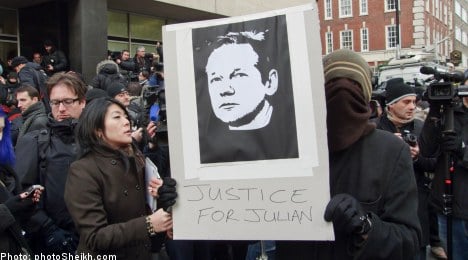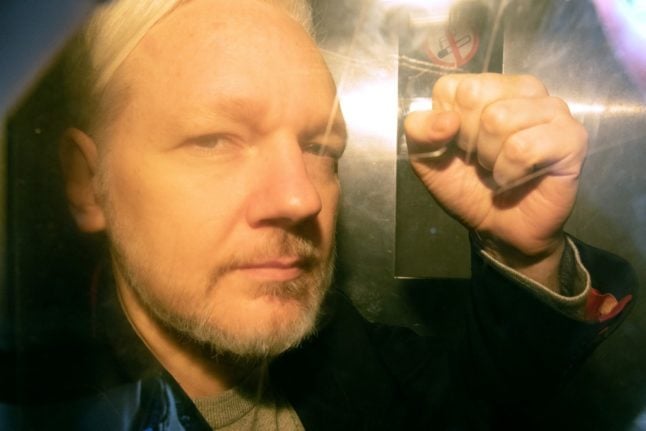After three days of legal argument, Judge Howard Riddle told Assange to report back to Belmarsh Magistrates Court in London on February 24th. Court officials confirmed that a decision will be taken on that day.
In closing arguments in Assange’s extradition case, lawyer Geoffrey Robertson complained to the court that Reinfeldt had ruined Assange’s chances of a fair trial over the claims of rape and sexual molestation, arguing that comments by Reinfeldt had rendered his client “public enemy number one” in the country.
“In a small country, it has created a toxic atmosphere. Media is reporting it and using it as a basis for comment,” he said.
Robertson asked to be allowed to bring extra evidence about how the comments could have affected the case, but his attempt to have the case adjourned as a result was turned down.
Clare Montgomery, the British lawyer acting for Sweden, dismissed Robertson’s argument as “hyperbole” and Riddle, who is hearing the extradition case alone, rejected the attempt to have the case adjourned as a result of Reinfeldt’s comments.
Assange’s team of lawyers have attacked the Swedish justice system throughout the extradition hearing, criticising the practice of holding rape trials behind closed doors and away from the glare of the media.
It was this criticism that prompted Reinfeldt to defend his country on Tuesday, telling reporters in Stockholm that it was “unfortunate that women’s rights and standpoint is taken so lightly” in the defence presented by Assange’s lawyers.
“Let’s not forget what is at stake here: it is a woman’s right to get a hearing on whether they have been the victims of abuse,” he added.
Sweden wants to extradite Assange to face questioning over allegations he raped and sexually assaulted two women, although he has not been charged. However, Assange insists the attempt is politically motivated and stems from WikiLeaks’ release of thousands of classified US cables.
If the judge ruled in favour of the Sweden on February 24th, the WikiLeaks founder can appeal the decision.
Assange’s supporters say they fear that extradition to Sweden will lead to him eventually being delivered to the US, where some politicians have called for him to face the death penalty for leaking state secrets.
WikiLeaks was on Thursday forced to defend itself against accusations from its former media spokesman in a new book that the organisation was “chaotic” and cannot protect its sources, and that Assange was a “megalomaniac” with poor personal hygiene.
Assange’s mother Christine has accused the Australian government of failing her son since his arrest.
In a letter to Foreign Minister Kevin Rudd, the former prime minister, released Friday, she wrote, “Julian did not even get the laptop you had publicly promised him which he needed to prepare for his case while he was in Wandsworth Prison.”



 Please whitelist us to continue reading.
Please whitelist us to continue reading.
Member comments